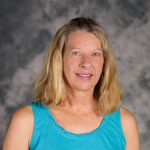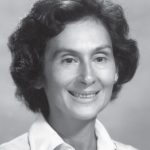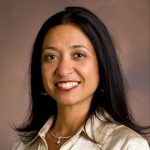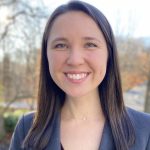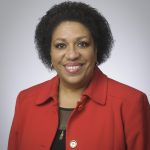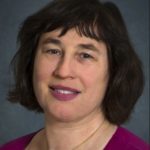For Immediate Release
Pennington, NJ – The Electrochemical Society fosters full and equal access to, and participation in, science for women and girls. To mark February 11—designated the International Day of Women and Girls in Science by the United Nations—the Society salutes women’s critical role in advancing electrochemistry and solid state science and related technologies—and the Society. ECS has supported and celebrated women at the forefront of science for over half a century.
ECS presidents exemplify organizational and scientific leadership. “Since the beginning of my career, I realized the responsibility of being one of a few women to follow this career path,” said Jan Talbot, chemical engineer and former ECS Board Vice President, President (2001-2002), and Interface Editor. As one of the few women in her field, Talbot achieved many firsts throughout her trailblazing career including being the first woman hired in her department at the University of California San Diego. She contributed countless research papers to the ECS Digital Library and contributed her body of work to the Society’s open access initiative, Free the Science.
Talbot followed in the footsteps of the Society’s first female president, Joan Berkowitz, who served in that role from 1979-1980. The fortieth anniversary of her presidency was celebrated with “40 Years After: Diversity for All,” a symposium at the 236th ECS Meeting. The symposium applauded past successes and looked toward the future, encouraging conversations and examining options to promote the continued support of not only women in the sciences, but diversity and inclusiveness overall.
Dr. Berkowitz designed experiments in metals melting and eutectic solidification in space for the lunar space program. Kathryn Bullock, president from 1995-1996, is known for her work in developing valve-regulated lead-acid batteries. Robin Susko, president from 2004-2005, has more than 25 U.S. and foreign patents for polymeric formulations, plasma processing, and semiconductor packaging design and reliability performance. Esther Takeuchi, president from 2011-2012, was credited by President Obama for “saving millions of lives” for contributing to the development of the battery system used to power cardiac defibrillators. Johna Leddy served first as ECS Secretary from 2008-2012, then as President from 2017-2018. Her research group’s incorporation of magnetic microparticles into ion exchange polymers such as Nafion® and other viscous matrices led to improved polymer electrolyte membrane (PEM) fuel cells and higher capacity, rechargeable alkaline batteries. Christina Bock, ECS President from 2019-2020, developed several novel approaches for the characterization and determination of relevant performance properties of electrocatalysts.
Women in ECS Board leadership roles today are Gerardine Botte as Third Vice President; Marca Doeff, Secretary; and Gessie Brisard, Treasurer. Shelley Minteer chairs the Honors & Awards Committee and Christina Bock, the Nominating Committee. ECS topic interest area divisions elected women to lead the ECS Battery Division (Shirley Meng), OBE Division (Diane Smith), and Sensor Division (Jessica Koehne).
To attract and retain talented women in the sciences, women must be included, recognized and heard. Early on, ECS awards and fellowships provided acknowledgement and encouragement. In the 1960s, summer fellowships supported women researchers including Kathleen Lehman (1966) and Kathryn Bullock. In the 1970s, they were awarded to Roberta G. Reed (1970), W. Jean Horkins (1970 and 1971), Beverly Alexander (1973), and Mary Suchanski (1975). Jeanne Burbank shared the 1966 Battery Division Research Award. Early career women scientist received ECS Young Author Awards for the best papers published by young authors in ECS journals. Honorees included Jean Horkans (1978), Hannah Reller (1981), Jocelyn Richer (1987), and Jennifer Bardwell (1989). Suzanne Mohney received the 1999 High-Temp J. B. Wagner Division Award which was awarded to Sossina Haile in 2000.
The Fellow of The Electrochemical Society recognizes advanced individual technological contributions in the field of electrochemical and solid state science and technology, and active membership and involvement in the Society. ECS Fellows include, among others, Geraldine C. Schwartz (1990), Stella Pang (1997), Kathryn Bullock (1999), Cammy Abernathy (2000), Robin Susko (2003), Jan Talbot (2004), Esther Takeuchi (2012), Elizabeth Opila (2013), Shelley Minteer (2013), Johna Leddy (2013), Nancy Dudney (2013), Geraldine G. Botte (2014), Ellen Ivers-Tiffee (2015), Deborah Jones (2015), Clare Grey (2017), Marca Doess (2017), Christina Bock (2017), Y. Shirley Meng (2018), Alison Davenport (2019), Jie Xiao (2020), Diana Golodnitsky (2020), and Katherine Ayers (2020).
ECS women leaders actively mentor younger women scientists. Lisa M. Housel received the 2020 ECS Energy Technology Division Graduate Student Award sponsored by BioLogic. She is a fifth-year PhD candidate in Chemistry at Stony Brook University, U.S., under the mentorship of Drs. Esther S. Takeuchi (ECS President, 2011-2012), Kenneth J. Takeuchi, and Amy C. Marschilok.
Travel Grants—another important form of support ECS provides women students and early career scientists—–are more than funding; they are gateways to the future. Madeline Sciullo was a fourth-year student studying electrical and computer engineering at the University of Florida when she received a grant to attend the ECS biannual PRiME meeting in Honolulu, HI. She knew travelling there would be costly, but she felt she had to attend. “These international meetings are so crucial to the development of the field. A lot of the work that I’m doing, nobody in the United States is doing. Collaborating and understanding research from all across the world is really important. I definitely learned a lot (at the meeting), not just about my field, but everything else that could be related with the work that I do.” Today, Madeline is a Space and Radiation Effects Engineer at Amazon. We hope the ECS Travel Grant helped her get there.
Female scientists have been the star speakers at ECS biannual meetings for many years. Janet G. Osteryoung, Director of the Division of Chemistry at the National Science Foundation, presented the ECS Lecture in 1995. Carol A. Bessel, Acting Division Director at the National Science Foundation (NSF), was the highlighted speaker at the 235th ECS Meeting annual business meeting. Valerie Browning, Director of the Defense Advances Research Projects Agency (DARPA)’s Defense Sciences Office (DSO), delivered the ECS Lecture at the plenary session of the 236th ECS Meeting.
Today, with opportunities for face-to-face meetings limited by the COVID-19 pandemic, ECS continues highlighting women’s contributions in digital biannual meetings. The new ECS Webinar Series spotlights international women scientists including Dr. María Escudero-Escribano (University of Copenhagen, Denmark), Prof. Anita Ho-Baillie (University of Sydney, Australia), Dr. Jie Xiao (Pacific Northwest National Laboratory), Dr. Sharon Hammes-Schiffer (Yale University, US), Dr. Shelley D. Minteer, (University of Utah, US). Prof. Jenny Pringle (Deakin University, Australia) is scheduled for April and Dr. Kelsey Bridget Hatzell (Vanderbilt University, US) in May.
The Society recognizes that gender equality in the sciences is critical to solving pressing problems facing the global community. “There is clearly a change in attitude; women are accepted in the workplace as engineers and scientists. Though there has been a lot of progress getting women in powerful positions and in Science and Technology careers, the numbers are still lower than what we would like to see … For things to change dramatically, we (need) many more women in STEM careers, many more women who climb to the top of the technical careers… So please encourage your daughters, mentees, and friends to pursue STEM careers, and push them to stay with it,” said long-term ECS member Hariklia (Lili) Deligianni (entrepreneur and Adjunct Full Professor Biomedical Engineering, Columbia University; ECS Secretary from 2012-2016). There is still much work to be done. ECS is committed to the cause.
The Electrochemistry Society
ECS, a prestigious nonprofit professional society, has led the world in electrochemistry, solid state science and technology and allied subjects since 1902. By publishing research, hosting meetings, fostering education, and collaborating with other organizations, ECS advances scientific theory and practice. Our 8,000+ member community in 85+ countries develops innovative solutions to major global challenges. The ECS Digital Library, hosted on IOPscience, encompasses 160,000+ journal and magazine articles and meeting abstracts, and the Journal of The Electrochemical Society, the oldest peer-reviewed journal in its field. Scientists, engineers, and industry leaders share relevant scientific developments, network, and expand research horizons at ECS biannual, co-hosted, and sponsored meetings.
Learn more about the history of ECS at www.electrochem.org/history-ecs.
Media Contact
The Electrochemical Society
Shannon Reed
Director of Community Relations
609.737.1902, Ext. 107
Shannon.Reed@electrochem.org

